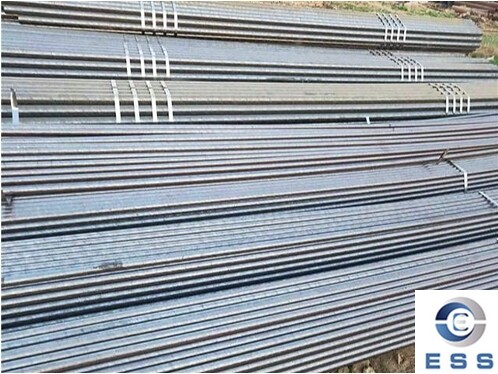
Mild
steel pipe is a kind of carbon
steel pipe and is a widely used pipe material, but their service life is
affected by many factors. Among them, the quality of the raw materials of the
pipes, the production process, the installation quality, the use environment,
etc. will have a certain impact on the service
life of mild steel pipes.
Service life of mild steel pipes
The expected service life of mild steel
pipes is about 10-50 years if they are properly maintained and maintained.
Ordinary mild steel pipes have a service life of about 10 to 20 years in
non-corrosive environments (such as water supply and ventilation systems inside
buildings). Through surface treatment or composite material technology, the
service life can be increased several times, such as: a composite pipe
structure that combines metal rigidity with plastic corrosion resistance can
achieve a maintenance-free life of more than 50 years.
Although there is no exact timetable for
the service life of these pipes, proper maintenance and installation can
significantly extend their service life.
Factors affecting the service life of
mild steel pipes
1. Quality of raw materials for pipes
Mild steel pipes made of high-quality
low-carbon steel have a longer service life, while mild steel pipes made of
poor-quality steel are easily corroded and damaged. In general, the main
types of mild steel pipes corrosion are electrochemical corrosion, chemical
corrosion, and high-temperature corrosion.
2. Quality of production process
A good production process can ensure the
quality of the pipe, reduce the corrosion resistance of the pipe, and increase
the service life of the pipe.
3. Installation quality
The installation quality of the pipe is the
key to determining the service life of the pipe. There should be no problems
such as loose installation, pipe bending, and arbitrary construction.
4. Use environment
The use environment of the pipe plays a
vital role in the service life. In some special chemical environments, the pipe
is prone to corrosion, so you need to pay attention when using it.
Methods to extend the service life of
mild steel pipes
1. Strong anti-corrosion (most critical)
Surface protection: hot-dip galvanizing is
preferred (the most economical and long-lasting), or high-performance anti-corrosion
coatings such as epoxy resin are selected according to the environment.
Ensure the quality of construction, especially the welds should be repainted.
Special environment:
Buried/underwater: anti-corrosion coating +
cathodic protection (sacrificial anode or impressed current) must be applied.
Transporting corrosive media: consider
lining with plastic, rubber or cement mortar.
2. Choose the right pipe specifications
Using pipes of different wall thicknesses
in different scenarios can greatly reduce the oxidation corrosion of pipelines
and extend their service life.
3. Design and installation optimization
Avoid water accumulation: design slopes and
set up drainage at low points.
Reduce gaps: welding is preferred, and pay
attention to sealing when connecting the pipe flange.
Anti-galvanic corrosion: different metal
contacts are isolated with insulating gaskets.
Protective coating: prevent bumps and
scratches on the coating during transportation and installation.
4. Control the use environment
Try to keep the environment dry and reduce
contact with salt and pollutants.
Control the temperature, pressure, and pH
value of the transported medium, and add corrosion inhibitors when necessary.
5. Regular inspection and maintenance
Regular inspection: clean and inspect the
pipeline regularly, and promptly discover and deal with problems in the
pipeline, which can effectively extend the service life of the pipeline. Focus
on checking the damaged, rusted and worn parts of the coating (especially welds
and support points).
Timely repair: if damage is found,
immediately remove the rust and repaint. Insufficient wall thickness or cracks
should be repaired/replaced in time.
Conclusion
In the process of using mild steel pipes,
we need to start from multiple aspects and comprehensively consider factors
such as materials, production process quality, installation quality, use
environment and correct maintenance methods to achieve the purpose of extending
the service life of the pipeline.













 Eastern Steel Manufacturing Co.,Ltd not only improve product production and sales services, but also provide additional value-added services. As long as you need, we can complete your specific needs together.
Eastern Steel Manufacturing Co.,Ltd not only improve product production and sales services, but also provide additional value-added services. As long as you need, we can complete your specific needs together.










